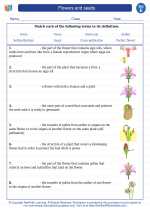Flowers and seeds -> ecological system
Ecological Systems
An ecological system, also known as an ecosystem, refers to a community of living organisms in conjunction with the nonliving components of their environment, interacting as a system. This includes plants, animals, and microorganisms, as well as the soil, water, and air around them.
Components of an Ecological System
- Abiotic Factors: Non-living components such as sunlight, temperature, water, soil, and air.
- Biotic Factors: Living components including plants, animals, and microorganisms.
- Producers: Organisms that produce their own food through photosynthesis, such as plants and algae.
- Consumers: Organisms that obtain energy by consuming other organisms, including herbivores, carnivores, and omnivores.
- Decomposers: Organisms that break down dead organic matter, returning nutrients to the soil.
Interactions in Ecological Systems
Within an ecological system, organisms interact in various ways:
- Competition: Organisms compete for resources such as food, water, and shelter.
- Predation: Predators hunt and consume prey, regulating population sizes.
- Symbiosis: Different species live together in close association, such as mutualism, commensalism, and parasitism.
- Energy Flow: Energy moves through the ecosystem from producers to consumers and decomposers.
- Nutrient Cycling: Nutrients are recycled through the ecosystem as they are taken up by plants, consumed by animals, and returned to the soil through decomposition.
Human Impact on Ecological Systems
Human activities such as deforestation, pollution, and overfishing can disrupt ecological systems, leading to habitat destruction, loss of biodiversity, and imbalances in the ecosystem.
Study Guide
When studying ecological systems, consider the following key points:
- Identify the abiotic and biotic components of different ecosystems.
- Understand the interactions between organisms within an ecosystem.
- Explain the importance of energy flow and nutrient cycling in sustaining an ecosystem.
- Analyze the impact of human activities on ecological systems and propose solutions for conservation.
By understanding ecological systems, we can appreciate the delicate balance of nature and work towards preserving and protecting our environment.
.◂Science Worksheets and Study Guides Fifth Grade. Flowers and seeds
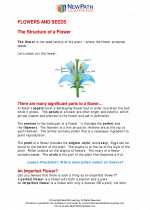
 Activity Lesson
Activity Lesson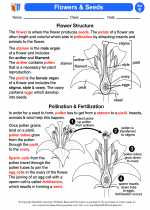
 Worksheet/Answer key
Worksheet/Answer key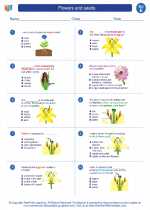
 Worksheet/Answer key
Worksheet/Answer key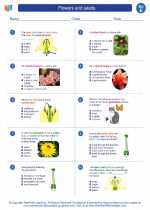
 Worksheet/Answer key
Worksheet/Answer key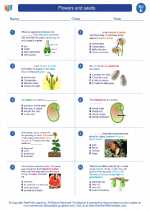
 Worksheet/Answer key
Worksheet/Answer key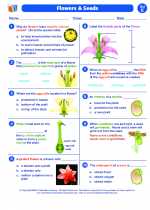
 Vocabulary/Answer key
Vocabulary/Answer key
 Vocabulary/Answer key
Vocabulary/Answer key